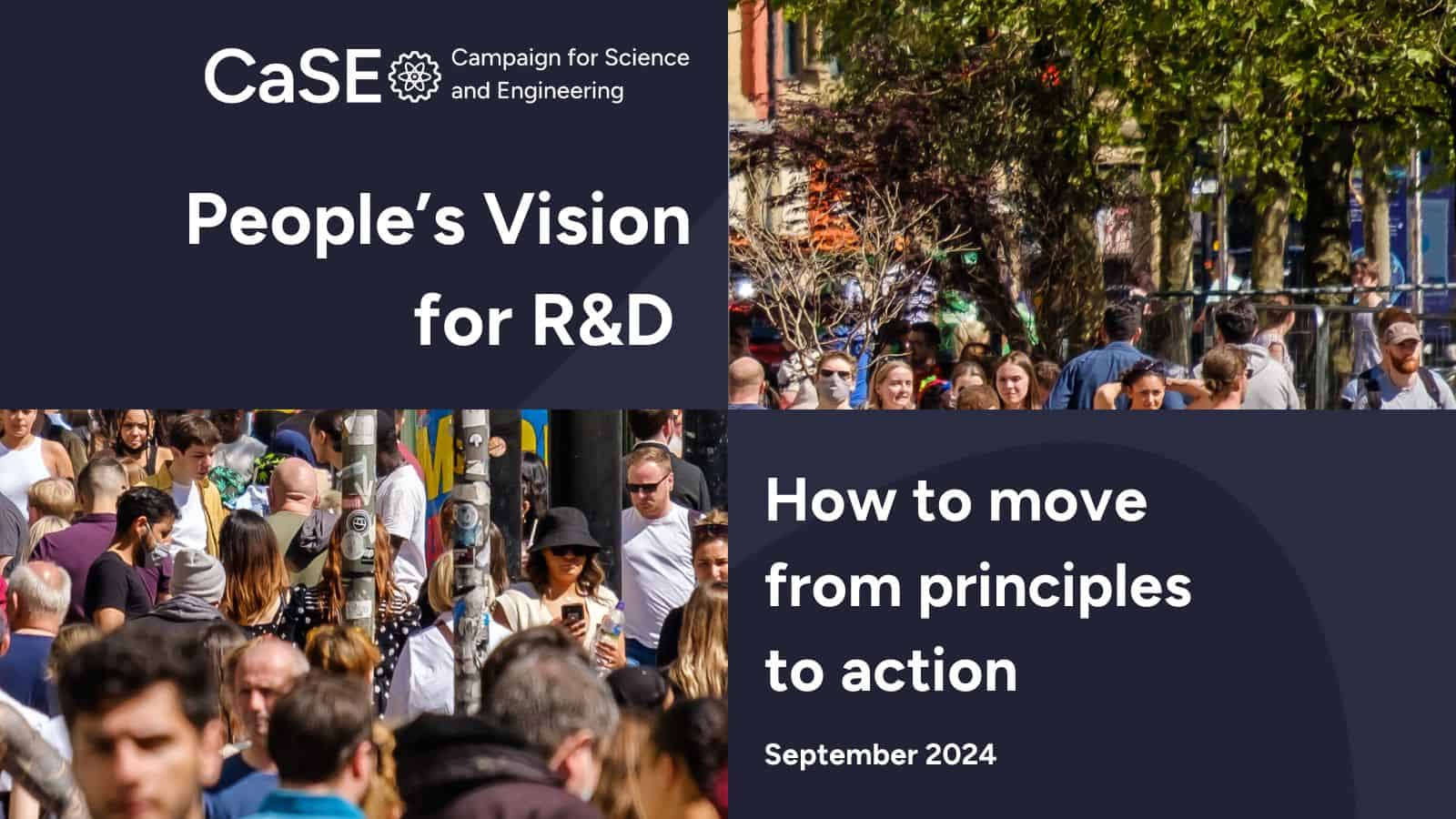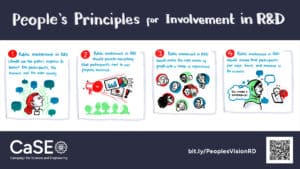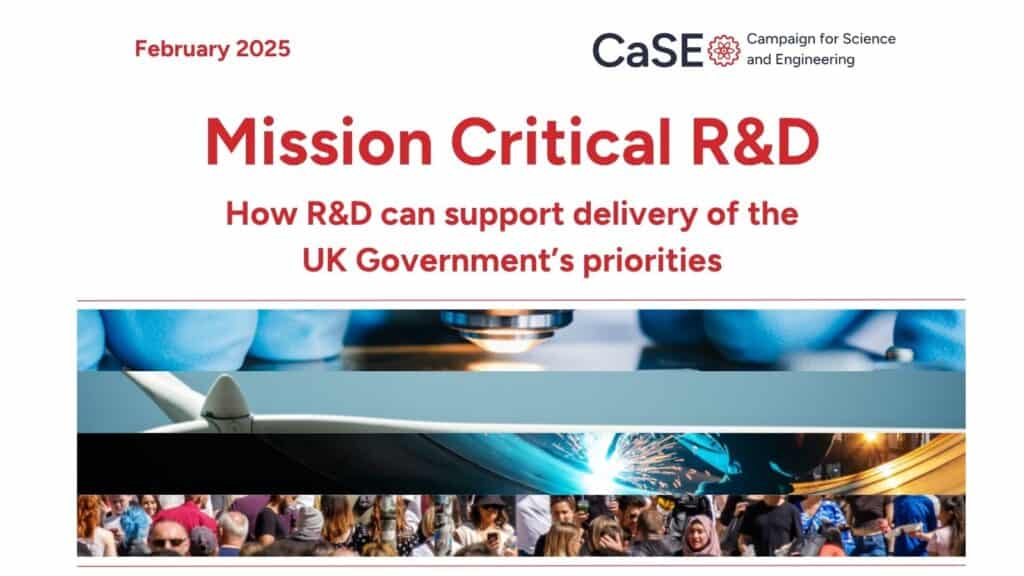Conclusions
The results of the dialogue process have emphasised to us that:
- The public’s emotional connection to R&D can be strengthened through the opportunity to learn more about, and reflect on, both R&D and involvement in it
- The approaches and behaviours chosen by those in the R&D system can support an increased sense of public agency and ownership in R&D
Participants expressed a range of motivations for getting involved in R&D, with priority given to projects they found interesting, that they felt would benefit wider society, and that would allow them to learn or develop new skills. However, the dialogue emphasised that while participants should feel informed, respected and invested in the work, they do not necessarily need to be excited by it. The resulting People’s Principles show what the public expects from the R&D sector. They demonstrate that participants believe that involving the public can lead to better R&D and improved involvement; and that accountability, transparency and trust are vital.
The opportunity in front of the R&D sector is clear. Opening up R&D, in a way that respects the People’s Principles, will not just improve R&D. It will bring more people closer to research and establish a stronger, long-lasting relationship with the public, grounded in mutual trust. This will bring benefits for research, society and individuals.
Adopting the principles will require a commitment to change from all parts of our sector, underpinned by honest and practical conversations about how to value and resource involvement in R&D. We are not starting from scratch – there are many excellent examples of processes and places where R&D happens being opened up to the public – but it is clear these efforts are not cutting through as widely as we need them to.
A more concerted effort will help the R&D sector to fully shake off its distant, academic image, and embrace the mutual benefits of working in partnership with the public.
Summary of recommendations
Our recommendations to further embed public involvement in R&D are framed around three connected challenges – culture, capacity and resourcing – and two overarching next steps.
To develop a culture that values involvement in R&D, CaSE calls on the sector to:
- Demonstrate sustained and visible support for public involvement in R&D among senior leaders and decision makers.
- Establish mechanisms to raise the profile of existing individual and organisational champions, and help them access the resources they need.
- Respond to demand for an open and honest public conversation about the people, processes and places connected to R&D and the benefits of engaging.
- Embrace new ways to engage with the public, including looking outside the R&D sector and stepping beyond our traditional comfort zone.
To increase capacity for involvement in R&D, CaSE calls on the sector to:
- Fund and develop training programmes for researchers.
- Create and promote opportunities for those working in non-research organisations or roles to develop skills in involvement.
- Increase capacity among the public by supporting greater and more diverse engagement, including by removing barriers.
To ensure proper resourcing for involvement in R&D, CaSE calls on the sector to:
- Work together to establish long-term plans for public involvement in R&D.
- Commit to long-term funding that is used wisely.
- Seek value for money and guard against tokenistic involvement.
To take steps to act on these recommendations, CaSE calls on R&D organisations to:
- Undertake an engagement and involvement health check
- Form stronger and more purposeful partnerships and networks






